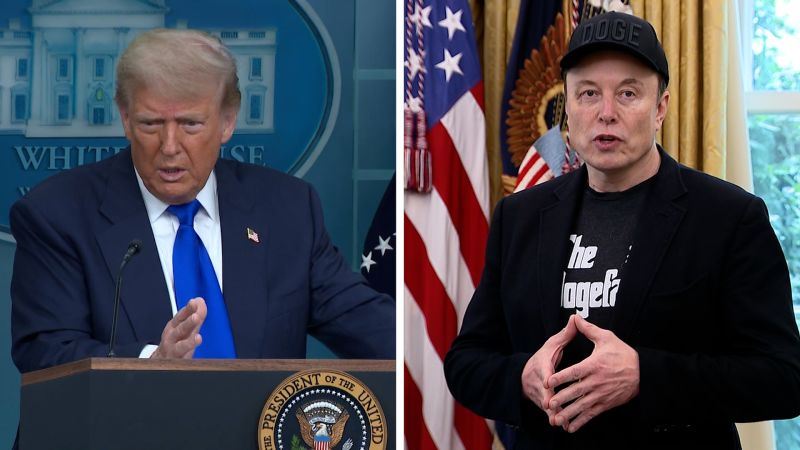Elon Musk has publicly criticized former President Donald Trump’s flagship legislation, the so-called “Big, Beautiful Bill,” reigniting tensions between the two high-profile figures. Musk’s opposition centers on the significant increase in national debt that the bill would entail. In response, Trump accused Musk of benefiting from more government subsidies than anyone else in history.
The clash between Musk and Trump over this legislation highlights ongoing debates about fiscal responsibility and government intervention in the economy. Musk, known for his outspoken views on various policy issues, has consistently advocated for reducing government spending and debt. Meanwhile, Trump has defended the bill as a necessary measure to stimulate economic growth and secure America’s financial future.
Background on the “Big, Beautiful Bill”
The “Big, Beautiful Bill” was a cornerstone of Trump’s economic policy during his presidency. It aimed to overhaul the tax system, increase infrastructure spending, and provide incentives for businesses to invest in the United States. However, critics have pointed out that the bill could add trillions to the national debt, a concern that Musk has echoed in his recent statements.
According to the Congressional Budget Office, the bill’s long-term impact on the federal deficit could be substantial, raising questions about its sustainability. While supporters argue that the economic growth spurred by the bill could offset the debt increase, skeptics remain unconvinced.
Musk’s Critique and Trump’s Rebuttal
Musk’s criticism of the bill is not entirely surprising, given his history of advocating for fiscal conservatism. He has often spoken about the dangers of excessive government spending and the importance of maintaining a balanced budget. In a recent interview, Musk stated, “We cannot keep piling on debt at this rate without serious consequences for future generations.”
Trump, however, was quick to defend the legislation and his record, taking a personal jab at Musk. In a statement, Trump said, “Elon Musk has received more subsidy from the US government than any human being in history. It’s ironic for him to criticize a bill designed to boost the American economy.”
“Elon Musk has received more subsidy from the US government than any human being in history.” – Donald Trump
Expert Opinions and Historical Parallels
Economists and political analysts have weighed in on the dispute, offering varying perspectives. Dr. Linda Thompson, an economist at Georgetown University, noted, “The debate between Musk and Trump reflects a broader ideological divide in American politics. On one hand, there’s a push for government-led economic initiatives, while on the other, there’s a call for fiscal restraint and market-driven solutions.”
The clash also draws parallels with historical debates over government spending and economic policy. In the 1980s, President Reagan faced similar criticism for his tax cuts and increased military spending, which also led to a significant rise in the national debt. However, proponents argued that these measures were necessary to revitalize the economy.
Implications and Future Outlook
The ongoing debate over the “Big, Beautiful Bill” and its implications for the US economy is likely to continue as policymakers grapple with balancing economic growth and fiscal responsibility. The outcome of this debate could have far-reaching consequences for future legislation and the broader economic landscape.
As Musk and Trump continue to exchange barbs, the conversation around government spending and economic policy remains at the forefront of public discourse. Whether the bill will ultimately deliver on its promises or exacerbate the national debt is a question that only time will answer.
The next steps will involve further analysis and debate among lawmakers, economists, and the public, as they assess the potential impacts of the legislation and seek a path forward that balances growth with fiscal prudence.
